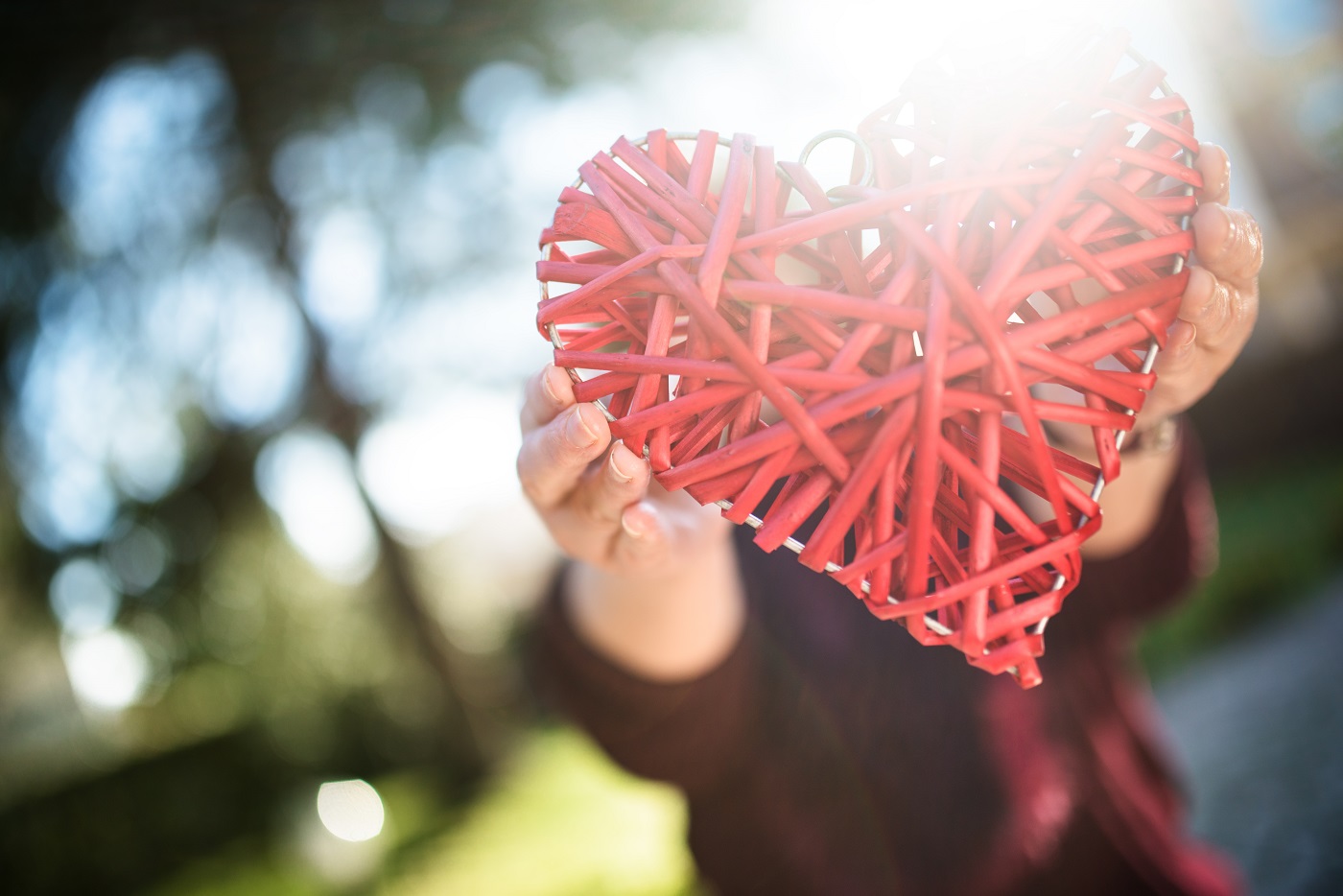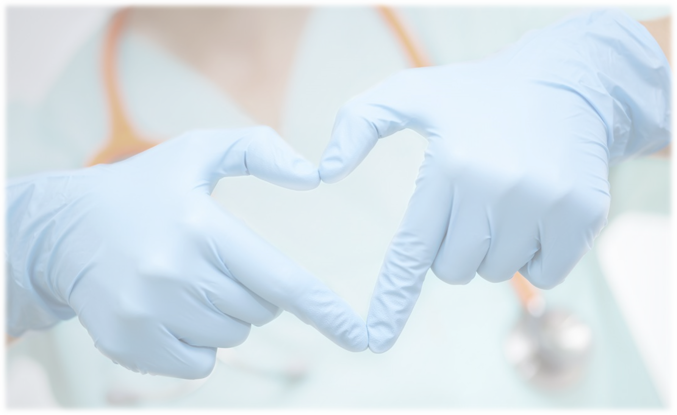Feeling Grateful
- Location: Portland,


It was a lazy Sunday morning, March 28, 2021, when my brother-in-law and I were taking down an old plum tree in my Mom’s yard. After using chain saws to cut the tree into large pieces, my brother-in-law and I took a quick break on the patio and heard my wife Donna tell me to sit down. I felt a dizzy spell at first, and then noticed muscle control issues as I tried to sit down—it was a controlled crash as I tried to figure out what was wrong with me. Donna sat beside me and asked me if I was OK. My brain was working fine, as I knew what I was attempting to say, but I had a hard time speaking. I felt a tingling along my left arm and side, and even though I recognized the symptoms right away I was still in denial. I experienced the classic stroke symptoms: F – A – S – T… F (FACE DROOPING) - I didn’t know if my face was drooping. A (ARM) - After I collapsed into the chair, I felt my left arm go numb. S (SPEECH SLURRED) – I tried to answer my wife’s questions, but my speech was slurred. T (TIME TO CALL 9-1-1) – My wife called 911 and the paramedics arrived within minutes to assess, treat, and transport me to the hospital. They told me they were taking me to Providence Portland. The ride seemed like it took forever, as I was laying down in the ambulance as the paramedic called ahead to let the E.D. know my vitals and what to expect. The paramedic fumbled to get an I.V. into my arm but he soon got it in, and not long after that, we arrived at the Providence Portland Emergency Room. I was quickly brought into a room, where they assessed my condition, put me into a gown, and introduced me to Dr. Kishan Patel, the neurologist on call at St. Vincent’s. I laughed inside, as he was on a wheeled monitor, working remotely. He asked my condition and gave instructions to the E.D. staff on what to do. It was like seeing the episode of the ‘Big Bang Theory’, where Sheldon Cooper set up a remote powered monitor, so as not to expose himself to germs. Except, this episode had Dr. Patel working from Providence St. Vincent, and saving my life. I remember letting the E.D. staff know that I worked at Pop #1 and hearing them say “he’s one of ours”. Within minutes of arrival, I was having an MRI scan, and while that was being performed, Dr. Patel was calling my wife to ask her authorization to administer TPA, Tissue Plasminogen Activator, which helps to restore blood flow to brain regions affected by a stroke, thereby reducing the risk of damage and functional impairment. Donna gave permission, and after the TPA was administered in the ED, I was soon in CCU, resting as the TPA did its magic. I don’t remember what time it was by then, only that the TPA was administered within the optimal time limit. I remember not being able to lift my left hand to “squeeze the nurses’ or doctor’s fingers” at first, but by that night, I remember telling the nurse that I did not want to hurt her by squeezing too hard. I spent the first night in CCU, watching other patients come and go, and wondering when I could get up and leave. I remember being impressed, as everyone knew what they were doing, and quickly responded to a Call Button. I woke up the next day to shift changes and was told I was being moved to the 8th floor after my M.R.I. My nurse came with me, as they wheeled me to my next destination, assuring me that I was doing better than expected, but I would miss the care I got from all involved. I did find it odd that I was fed pork chops for supper in CCU, because I had trouble cutting them up with both hands. I barely had muscle control yet and found myself picking up the pork chop in my right hand and trying as hard as I could to get it in my mouth. I had to laugh, as I remember stabbing the pork chop into my face on several attempts to eat it. The next night, I moved to the 4th floor REHAB Unit. My first observation, this was a much smaller room, with no shower in the bathroom. There was also a camera, to keep an eye on patients from the nurse’s station. At first, it felt more inhospitable than the room I just left. The bed was shorter, and the A.C. unit was still on “winter mode”, making the room very hot, but I did receive a small box fan from Jeremy, my night nurse. I remember chatting with my cousin (who works in Providence maintenance) later that evening and waking up to one of his crew members coming in the room and fixing the A.C. unit the next morning (Thank You, again). On the Rehab unit, I received intensive one hour therapy sessions--physical, occupational, and speech. All my therapists were great, very encouraging, and very professional, as they encouraged me through the exercises and routines. As I got back to my room from a walk with my new physical therapist, she pointed out the new bed that was in my room. While we were out, my cousin’s crew exchanged the bed, to replace it with one that had an extension on it for my legs. I am 6’ 2”, so regular beds are too short. (Thank You guys, I appreciated it). My therapy sessions continued, as I got more and more control over myself, and listened to their words of advice. As a stroke victim, I had to learn to “slow down”. This was soon evident, as I experienced near falls when I lost my balance on quick movements and turns. But I explained to them, that working in my job, I would most likely be doing a report or dashboard soon, involving patient falls, and the last thing I wanted was to see my own name on the report. One day, my nurse came in and announced they were moving me to room #411. They had an unruly patient coming in and needed the room with the camera to keep an extra eye on him. So off I went again, this time to room #411, a one-time double suite, with a shower. It was a much larger room, and again I found myself looking out the window wondering what they were doing up on the 8th floor of the building next to me. Also, by then, I remember asking my doctor, Dr. Bess Perkey, when they were planning to release me. I noticed that the 4th floor seemed full and there were patients who really needed the staff’s attention and help. I felt I could manage on my own, and I could provide the extra room by leaving. She was glad to see my improvement, and her, my therapists, and nurses would meet to discuss my progress. The next day, they told me I was leaving that Friday, April 9th, thirteen days after my stroke. I was ecstatic, and a little sad, with the news. I was soon going home, but at the same time, it meant that I would soon be leaving the men and women that kept me alive and did so much for me while I was there. When the big day came, I was excited to be going home, but still a little sad at leaving the floor. They were all great to me, I appreciate what each of them did for me, and will forever be thankful to every one of them. I only wish we were not in a Covid environment, and that I had an opportunity to walk in and thank them all personally. I was soon scheduled with outpatient therapy at Gresham Providence Rehabilitation Services, for my continued speech, occupational, and physical therapy sessions. In June, after a few weeks of therapy with them, Donna and I checked-in with Dr. Patel. By this time, I walked without my walker and used a cane, at times, for balance. I could also speak much better now and had little trouble putting together words and sentences. Dr. Patel shared where the stroke happened and explained to us how it happened and what to expect going forward. He was pleased by my progress and wondered why I wasn’t back at work yet. While continuing therapy, I had a check-in with Dr. Perkey, to assess my progress. I asked again if she would release me to go back to work. I was told by Dr. Perkey, I could go back to work on July 1, part-time at first for 2 weeks, then assuming it all went well, return to full time on July 14. It was true what they had been telling me all along. As a stroke victim, one of the first things I would experience is my impatience. I wanted and needed to get back to work, not only because I like what I do, but also to feel the self-worth again. One of the last milestones for me to achieve for my physical therapy was to be able to walk onto a beach, stand in the surf, and fish. I should have started with that milestone, as when the time came, Donna and Adrian took the day off with me and drove to the coast. I helped to carry all our things to the water, baited the crab traps, and started fishing – without using my cane. We didn’t catch anything to talk about, but for me, it was a win-win situation, as I got to achieve the goal, but also learned I could do the things I loved again. I let my physical therapist know when we got back and cancelled all remaining sessions. On July 14, I logged into my work account for my first full day back. It felt so good, but I was still a bit nervous. Would everything still be there? Would I be able to log into what I needed for the job? Could I still do it? These questions and many more still come to mind on November 11. I can successfully complete full days at work. I still produce what is being asked of me. I am still discovering what I missed, and what happened while I was gone. Each day is a blessing for me, as I know it isn’t one that is promised. You must make the most of every opportunity and each day you are given on this Earth. I am still waiting for the opportunity to personally thank everyone for doing what they did to give me another chance. I suffered a pontine cerebrovascular accident (also known as a pontine CVA or pontine stroke) a type of ischemic stroke that affects the pons region of the brain stem. This type of stroke can be extremely devastating and can even lead to paralysis, Locked-In Syndrome, and death, in some cases. This type of stroke is preventable by simply controlling and watching blood pressure, through diet and exercise. Push away that extra helping, have a drink of water with the coworkers, quit smoking, avoid the salt, and go out and walk for 30 minutes a day. Anyone can do it, right? Your life and the lives of those around you, depends on it. Twelve months later, I know I still have a way to go before I can walk and talk normally again, or this may be the new normal. If it is, I am okay with that, too. I still have my marriage and lifelong commitment to my partner and wife, Donna, and my son, Adrian. If not for each of them, and the men and women of Providence, and Fire Station #73, I might not be here today. To every one of them, Thank You, for all you did for me. And to anyone else who may not know what to do or where to go if the time comes, this is it. I fully recommend Providence Health & Services, from the bottom of my heart. Thank you all.
.png)


.jpg)
